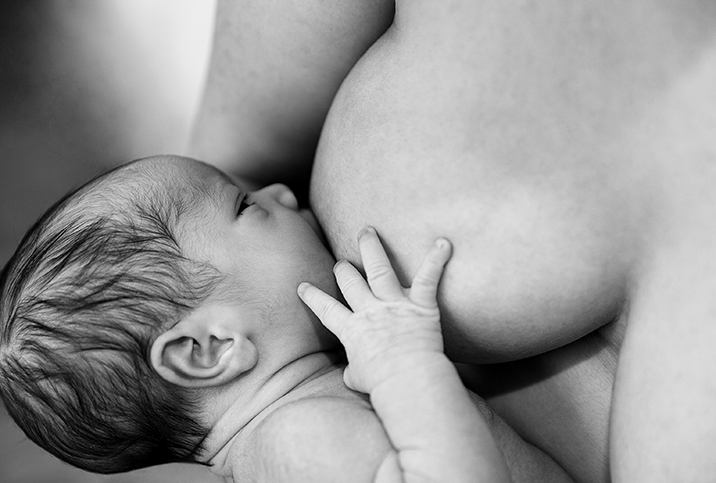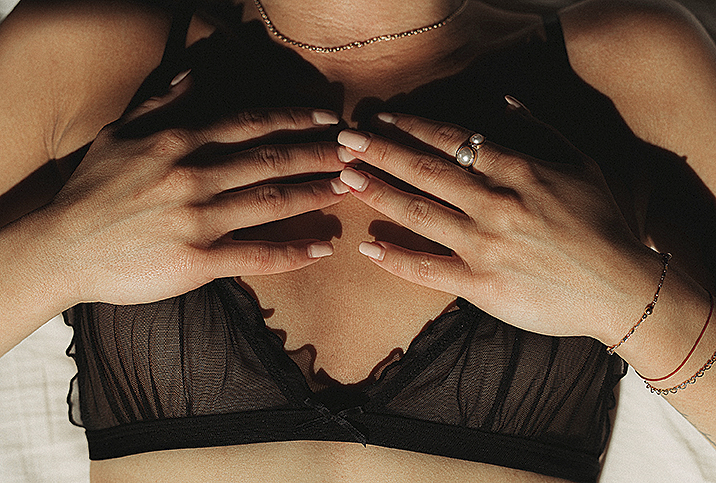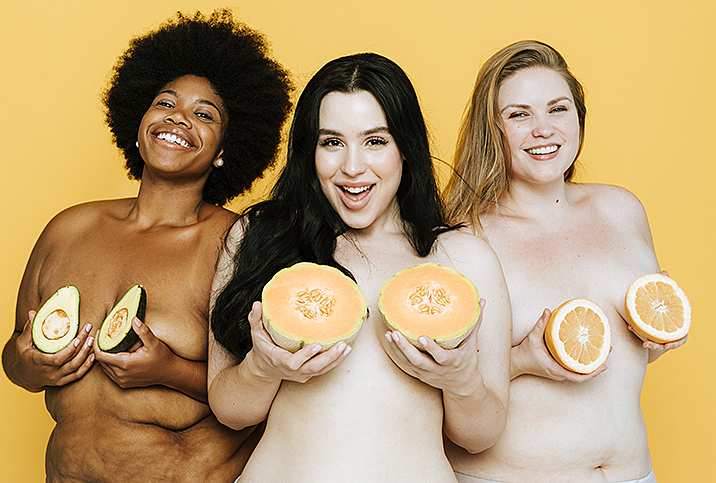8 Ways to Keep Your Breasts Healthy

Breast health may look different at different stages of life, but as women make up 99 percent of breast cancer cases, there's one fairly common goal.
Breast lumps don't have to be malignant to be scary, especially considering an aggressive history of benign breast lumps is a risk factor for breast cancer. Additional risk factors can vary and almost seem random. For instance, women who are tall (over 5 feet 8 inches), who first menstruated before age 12, who never gave birth or who delivered their first child after age 35 all have a greater chance of developing breast cancer.
Breast lumps don't have to be malignant to be scary, especially considering an aggressive history of benign breast lumps is a risk factor for breast cancer.
That said, there's plenty within your control.
- Avoid radiation pollution. Hopefully, no one's traipsing around nuclear plants or perfecting their juggling skills using radioactive rods, but certain careers do have higher levels of radiation exposure. Miners, those involved with weapons production or airline travel, and radiology technicians all need to take extra preventive measures.
- Toss the cigarettes. It's far easier said than done, but nicotine reduces estrogen, bringing about menopause earlier and much faster. While estrogen in excess can contribute to breast cancer, postmenopause is the most common time to develop breast cancer. Consequently, more time spent in postmenopause increases the potential of developing breast cancer.
- Cut your salt intake. Breast cysts are a young woman's game. Specifically, those between 15 and 35 years old are prone to the benign but potentially uncomfortable growths. Salt is a major factor in fluid retention, and as cysts are fluid-filled, some researchers speculate that a low-sodium diet may minimize discomfort caused by growths.
- Keep weight in check. Unfortunately, one of the many concerns with obesity is a heightened chance of breast cancer. This may occur because obesity raises levels of insulin and estrogen, both necessary hormones that in excess contribute to cancer development. Another contributing factor is that fat can hide developing tumors. Healthy bodies take many forms, so concentrate on achieving 150 minutes of weekly exercise and embracing a whole foods diet.
- Limit or avoid alcohol. If you're not one to reach for liquid reinforcements, whether alcoholic or energy-boosting, feel free to skip to the next tip. However, if you're among the half of women who report consuming alcohol in the last month, keep in mind there's no "safe" level of regular alcohol consumption, and even low alcohol intake increases your odds of developing breast cancer.
- Choose natural sweets. Getting your sugar fix from nature may initially seem less fun than chowing down on a candy bar, but the long-term benefits outstrip any Kit Kat. Plant-based diets are associated with a lower rate of benign breast growths, known as fibroadenomas. Blue-black berries get their pigmentation from anthocyanin, an anti-inflammatory, anti-diabetic, anti-cancer (and, really, anti almost everything we worry about) chemical compound. Grapes and pomegranates contain ellagic acid, or tannins, which have proven to have cancer-preventive properties. Berries aren't a legitimate treatment plan for cancer, but integrating them into your daily diet will only benefit you.
- Breastfeeding. The benefits of breastfeeding for infants is widely discussed, but there are plenty of benefits for the mother as well. Lactation lowers a woman's chances of type 2 diabetes and high blood pressure, and serves as a natural form of birth control by delaying menstruation after giving birth. As a result, this reduces a woman's life-long exposure to estrogen.
- Reexamine your birth control after 35. Contraception is by no means limited to the pill; the world's greatest invention comes in many shapes and hormone levels. While researchers noticed a small uptick in breast cancer among women ages 35 to 44 on the pill with a family history of breast cancer, there is no concrete link. One theory is that older women were taking older forms of the pill, which carried higher levels of estrogen. A nonhormonal or progestin-only form of birth control is a safe bet for women who are especially concerned with their likelihood of developing breast cancer.
Many of the determinants of breast health are genetic or simply not up to us, but common health advice rings even truer when considering its impact on breast health. Open and frequent communication with your OB-GYN or healthcare provider and daily health measures are the best insurance for optimal breast health for your unique body.


















